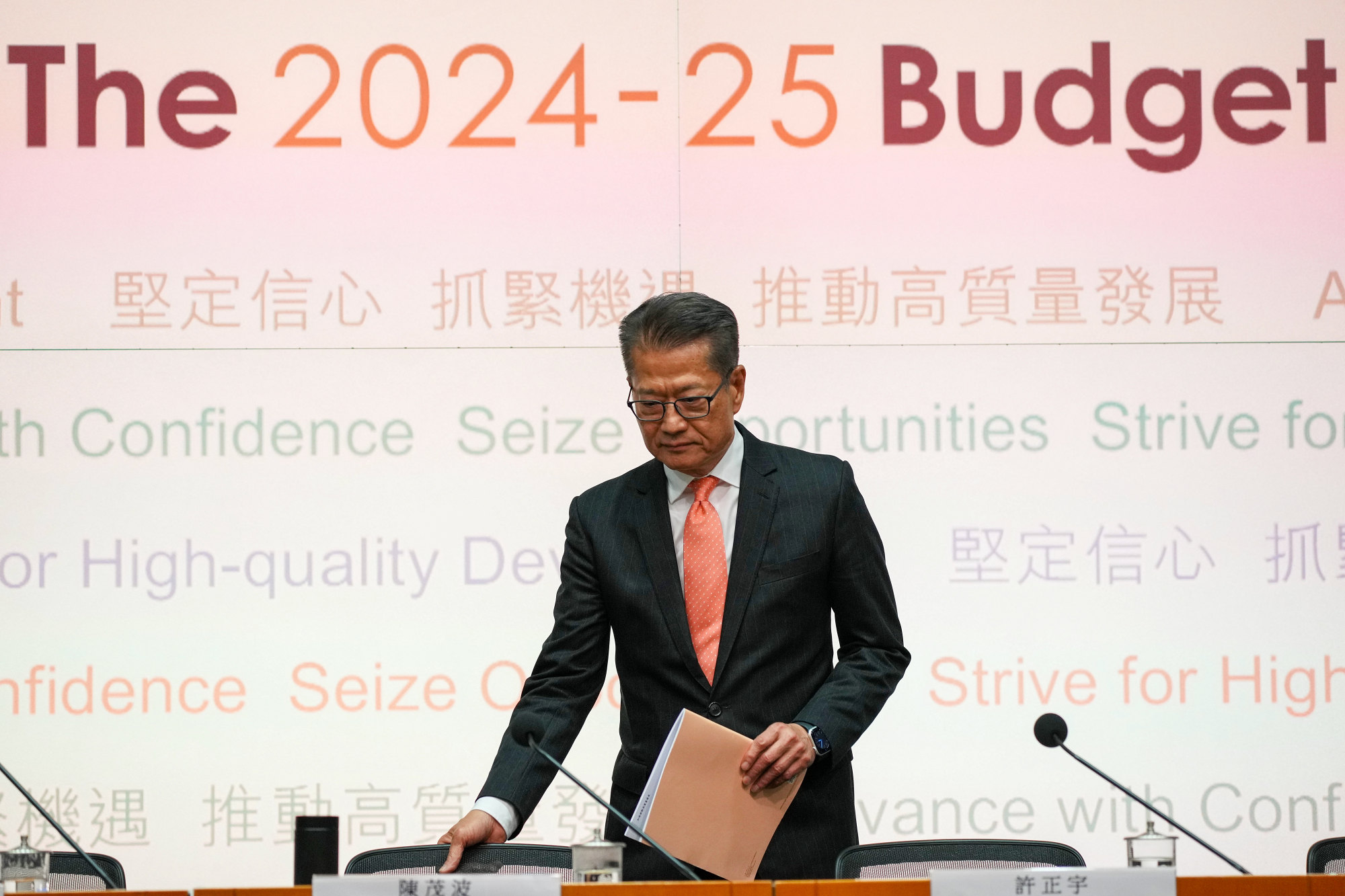
Hong Kong’s Paul Chan dismisses concerns bond issuance plan may hurt credit ratings, says global firms have welcomed policy
- Finance chief also issues rejoinder after predecessor slams bond issuance proposal in new budget, says past administration failed to boost land supply at the time
- Chan says credit rating agencies, financial institutions, among others he spoke with, ‘all agree the government should issue more bonds’
Former finance chief Tsang wrote on social media a day earlier that government bonds might be unattractive to buyers amid the high interest rate environment, fearing the city’s credit ratings would be affected when it needed to pay the debt’s interest.
Tsang, who left the government in 2017, also argued Hong Kong must find revenue sources other than bond issuance to cover government spending and warned that the city had entered an “era of structural fiscal deficits”.

But Chan brushed aside such concerns and argued the government’s proposed bond issuances had been welcomed by financial institutions.
“The credit rating agencies, financial institutions, as well as professional investors and market participants I have engaged with have all agreed the government should issue more bonds to utilise market funds to ensure timely implementation of various infrastructure investment projects that are necessary for our development,” he told a radio programme.
The minister added that an assessment conducted by the International Monetary Fund in Hong Kong also suggested that the government’s finances were highly robust and had a sufficient buffer zone.
The main reason behind the proposed bond issuances was to drive crucial infrastructure schemes, such as the Northern Metropolis mega project and the Hung Shui Kiu new development area, to ensure sustainable land and housing supply, he said.
Chan also said the local property market skyrocketed from 2007 to 2016, attributing the shift to the failure of the administration at the time to develop land, as well as a lack of investment in infrastructure to boost the land supply for housing.
He did not name Tsang, who served as financial secretary at the time, in his remarks.
Chan said that some flats between 2007 to 2016 went from costing HK$1 million (US$127,730) to hitting HK$3 million.
“Why did this happen? It is because land development was halted at the time, with insufficient investment in infrastructure and inadequate land supply. We could only watch as property prices soared,” he said.
“We will never allow this situation to happen again today, and will definitely take control of the land supply to avoid a repeat of the pain we endured in the past when the property prices went up.”
The finance chief also indirectly addressed Tsang’s warning against the use of borrowed money to cover government expenditure, with Chan saying the funds raised from bonds would “definitely” not go towards operating costs.
Hong Kong must look beyond bond issuances to cover public spending: ex-minister
The government was not in a rush to issue bonds and would exercise control over its timing, the minister added, pointing to the possibility of falling interest rates later this year.
In his budget speech last week, Chan said authorities planned to issue HK$120 billion in silver, green and infrastructure bonds for the 2024-25 financial year. The amount is then expected to range from HK$95 billion to HK$135 billion annually over the following four years.
The proposal aims to address a shortfall in public finances, with a projected surplus not expected until 2027-28.
The deficit will be HK$101.6 billion for this financial year, far higher than the previous estimate of HK$54 billion, amid a substantial reduction in land premiums and income from stamp duty.
Chan on Monday also stressed there was no need to worry about the government experiencing structural fiscal deficits as the operating and consolidated accounts were expected to respectively regain balanced budgets in two and three years.
Simon Lee Siu-Po, an honorary fellow at the Asia-Pacific Institute of Business at the Chinese University of Hong Kong (CUHK), said the government should be cautious when using borrowed money to develop infrastructure projects to create revenue.
“The real estate market and land prices have declined significantly compared with a few years ago,” he said. “It’s important to carefully analyse the financing costs and benefits of the projects while issuing bonds to avoid making wrong decisions.”
Hong Kong treasury chief champions HK$600 billion bond issuance plan
Terence Chong Tai-leung, executive director at CUHK’s Lau Chor Tak Institute of Global Economics and Finance, said he disagreed with Tsang’s suggestion that the city had entered a period of structural fiscal deficits.
“By structural deficit, it means your expenditure is increasing rapidly but the income is growing at a slower pace. But our expenditure increases quite steadily, and the income is cyclical,” Chong said.
“I don’t see any reason to assume that the government income will be less than expenditure.”
The economist also said it was important to take into consideration the government’s investment return, noting the income from the Exchange Fund last year surpassed the estimated deficit.
The fund’s total assets increased by HK$9.8 billion, going from HK$4.008 trillion at the end of 2022 to HK$4.018 trillion at the end of 2023. The accumulated surplus stood at HK$652.4 billion as of the end of December last year.

